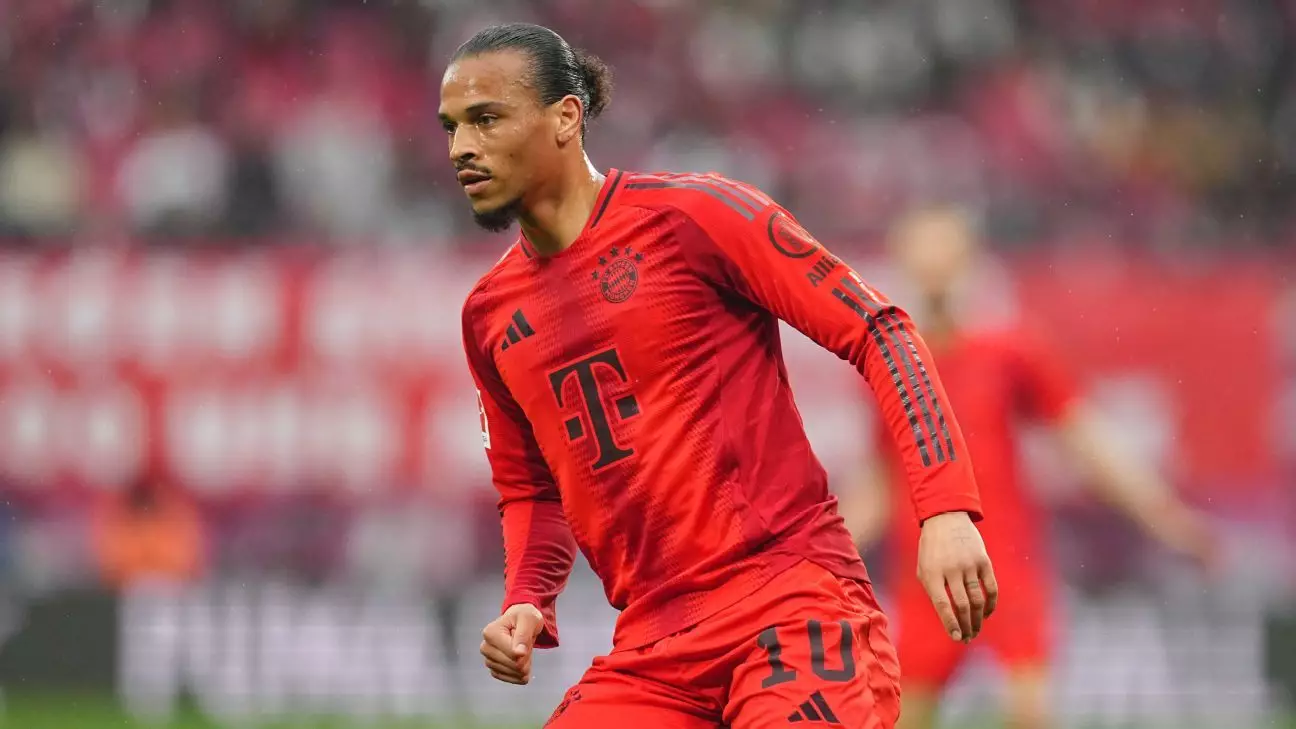Recent reports indicate that FC Barcelona is eyeing Bayern Munich’s dynamic winger, Leroy Sané, as a potential acquisition. This interest arises from the prospect of signing the 29-year-old on a free transfer when his contract runs out, following stalled conversations regarding an extension at the Allianz Arena. Barcelona, historically known for their attacking prowess, is looking to reinvigorate their squad by adding talented players. Sané’s performances this season, wherein he has directly contributed to an impressive 15 goals in 28 Bundesliga matches, align well with Barcelona’s tactical needs. Given his versatility and speed, he could be a welcome addition to the Blaugrana, whose attacking options have been criticized for inconsistency this season.
The evolution of Barcelona’s transfer strategy is particularly noteworthy. The club appears determined to secure high-impact players without the financial burden of hefty transfer fees, a strategy necessitated by their current financial constraints. It signals a shift from the glamorous big-money signings of years past to a more pragmatic approach that emphasizes player performance over price tag. Sané, whose career has seen him flourish under various tactical systems, could provide a valuable solution to Barcelona’s ongoing search for creativity and flair on the flanks.
Manchester United’s Ambitious Moves
Meanwhile, Manchester United is reportedly engaged in talks to bring on-loan Galatasaray striker Victor Osimhen back to Old Trafford upon his return to Napoli. This move indicates the Red Devils’ newly revitalized strategy in the summer transfer market, where they are eager to overhaul their squad. Osimhen, who has garnered attention for his performances, is viewed as an intriguing option to bolster their attacking line, particularly if the club aims to enhance its competitiveness in both domestic and European competitions.
United’s approach to scouting players has evolved to focus on those who can seamlessly integrate into their gameplay. The reported salary offer of approximately €12 million per season reflects United’s willingness to invest strategically in talent that could significantly alter their fortunes. As rumors swirl that an offer exceeding €75 million might be necessary to secure Osimhen, it underscores the growing financial stakes involved in acquiring elite players in today’s football market.
The Future of Garnacho and Other Young Talents
In addition to pursuing established players, Manchester United faces another pressing concern: retaining their own rising stars. Alejandro Garnacho, a promising winger, is reportedly drawing interest from Chelsea, with the Blues willing to part with around £65 million for his services. It raises questions about United’s ability to keep its young talent amid increasing interest from top clubs. Garnacho’s recent performance, where he both scored and assisted in a narrow defeat, has only heightened expectations around his potential.
The decision to either keep or sell such vital assets will ultimately depend on United’s long-term vision and current managerial strategy. The ongoing tug-of-war for such players signifies the increasing competition for top young talent and the financial incentives driving those pursuits. Failing to retain promising players like Garnacho could signal a more profound philosophical rift within the club’s leadership regarding how to balance the development of young talents with the necessity for immediate results.
Global Reach of Football Transfers
As teams across Europe adjust their transfer strategies, clubs are also competing on a global stage for the signatures of rising stars. Al Nassr, the Saudi Arabian club boasting Cristiano Ronaldo, has reportedly made a bid to acquire Feyenoord’s Dávid Hancko, a talented center-back coveted by several clubs. This trend reflects the shifting landscape of football, where money is increasingly becoming a decisive factor in reshaping traditional power dynamics within European football.
Simultaneously, reports indicate that Arsenal’s midfielder Jorginho has reached a pre-contract agreement with Flamengo, highlighting the allure of relatively stable and competitive football environments outside Europe’s elite leagues. As football becomes an ever-turning wheel of transfers, negotiations, and strategy, it’s clear that clubs are adapting to the evolving marketplace in a bid to fortify their squads.
This emerging competitive landscape underscores the necessity for clubs to be astute and strategic, not just in acquiring players but in navigating the complexities of ever-changing football economics. The ripple effects of each deal are likely to shape the fortunes of clubs and players alike, propelling some toward glory while sending others into uncertainty.

